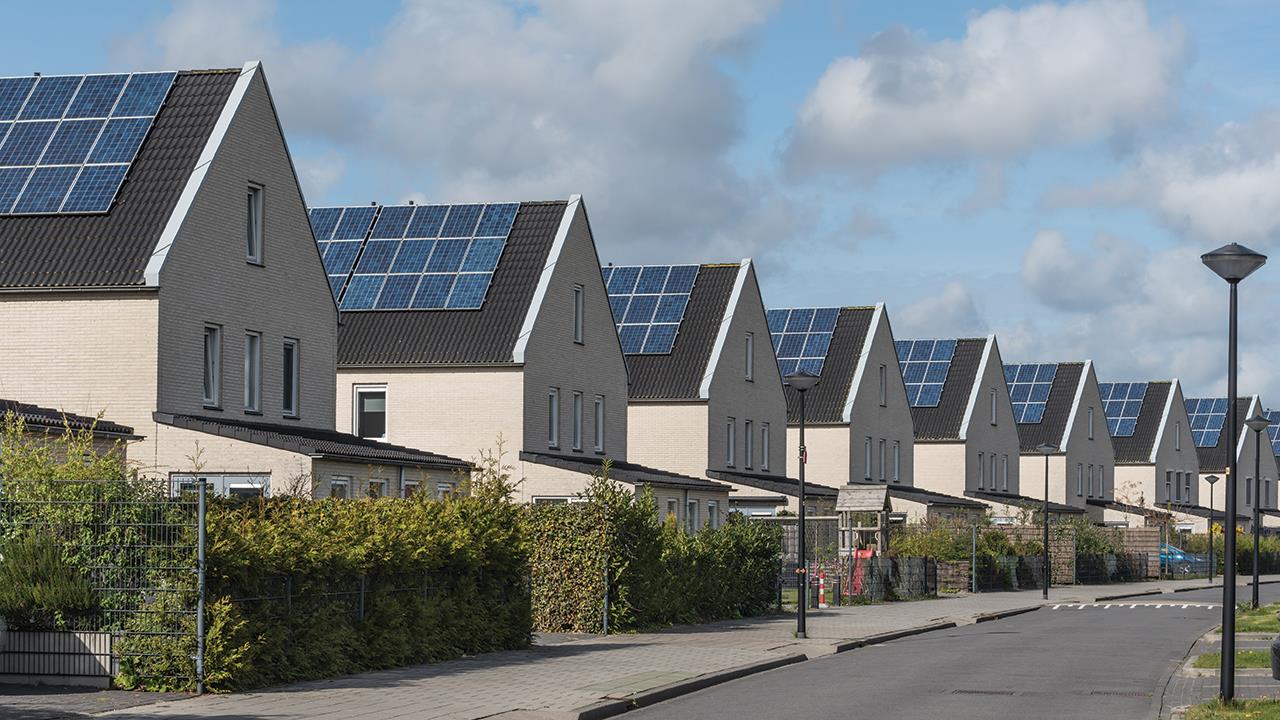


Stewart Clements, Director at the Heating and Hotwater Industry Council, explains what factors the industry needs to consider to provide an ongoing strategy to ensure a successful low carbon transition.
Government targets to reduce carbon emissions have set the UK on a pathway to reach net-zero emissions by 2050. In respect of what this means in real terms, while the future for homes on the gas grid is still uncertain, what we do know is that newbuild homes in the UK will soon be subject to the rules of the Future Homes Standard, which seeks to end the installation of fossil fuel gas heating systems in all new build dwellings from 2025. Hydrogen, hybrid, and more electric-based heating, such as heat pumps combined with hot water cylinders, will therefore be the norm for newbuild homes in the coming years.
With low carbon heating changes already on the horizon, to achieve these targets it is important to garner the support of all involved, from homeowners through to manufacturers. This is because any period of change will undoubtedly be met with some early adoption issues and, as a result, support and discussion will be required across the supply chain to ensure a successful transition.
Emerging technologies and consumer demand, coupled with the demands on decarbonisation have resulted in a very different domestic heating landscape. The industry as a collective must now come together to provide a diverse platform for rigorous discussion on the future of UK heat. The UK needs an ongoing strategy for heating systems which looks at the wider system, the journey of a home, and the consumer proposition. As the industry navigates low carbon solutions, there will be an overarching heating systems approach in how we work with each other, and with the government.
Key areas of importance include legislation, installer qualifications and training, testing, labelling, and consumer education. Any new policy framework must be designed with and around consumers, taking their different needs into account.
A whole-house approach is also needed, looking at the building as an energy system, and the consumer contact with this whole system. This should include an assessment of the building fabric, designing for low carbon heating, and ensuring the customer understands what all of that is.
The process taken when moving forward with a replacement or upgrade of a heating system within a house needs full assessment and design proposals. For that, the industry needs the right competencies and qualifications, and also a record of what that upgrade could be. Wider technologies must also be part of the process – heat pumps, micro-CHP, hydrogen boilers, controls, heat recovery, and the broader topics such as ventilation and fuel factors.
Upgrading homes is a complex picture and we must keep an eye on the most efficient and logical order to undertake an upgrade. We all want to live in a home that’s warm, healthy, and comfortable for our family. The challenge now is to balance that with the need to use less energy to heat, and reduce the impact on the environment for future generations.
With fundamental changes to the heating industry on the horizon, it is important that the heating industry continues to play its role in the net-zero journey. This includes providing the government with the technical expertise and feedback that can help to drive efficiency and deliverability of low carbon heating solutions.
By adopting a common goal and understanding we have an opportunity to deliver a practical plan for net-zero, and one which can be communicated across the supply chain, thus delivering a message that the consumer receives, understands, and engages with.
As part of this strategy, the Heating and Hotwater Industry Council (HHIC) has formed a Systems Group to bring together manufacturers from the different groups of the HHIC and parts of the Energy and Utilities Alliance to form an ongoing strategy for heating systems. Any members with an interest in taking part in the group as the work moves forward should contact lucy@hhic.org.uk.
If you'd like to keep up-to-date with the latest developments in the heating and plumbing industry, why not subscribe to our weekly newsletters? Just click the button below and you can ensure all the latest industry news and new product information lands in your inbox every week.